GE2025: Chance encounter queuing for food behind Leong Mun Wai set this PSP new face on the path to politics
Mr Lawrence Pek, 55, the former secretary-general for the Singapore Manufacturing Federation, said that he plans to advocate for affordable housing and helping children with developmental delays – both issues his children have faced.
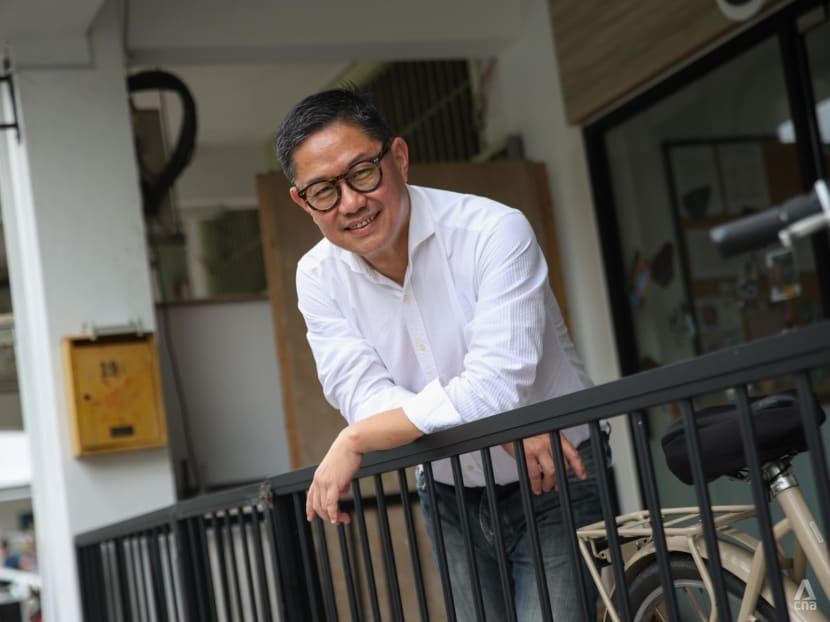
Mr Lawrence Pek from the Progress Singapore Party who used to be the secretary-general of the Singapore Manufacturing Federation. (Photo: CNA/Nuria Ling)

This audio is generated by an AI tool.
When Mr Lawrence Pek found himself queuing behind Mr Leong Mun Wai at a coffee shop in Serangoon Gardens in August 2023, he was quick to strike up a conversation with the chief of the Progress Singapore Party (PSP).
He did not hesitate to approach Mr Leong because he admired the courage of the Non-Constituency Member of Parliament to speak up and raise issues in parliament.
What Mr Pek did not know at the time was that this chance encounter would eventually set him on the path to be involved in the upcoming General Election.
The pair instantly connected and then formed a close friendship in the months that followed because their political views were aligned, with Mr Pek joining the party that same year.
Last August, Mr Pek was even invited by Mr Leong to be his "plus one" at the National Day reception held at the Istana, the official residence of Singapore's president.
Since that reception, Mr Pek, former secretary-general of the Singapore Manufacturing Federation (SMF), has been thrust into the spotlight by PSP.
Earlier this year, the 55-year-old was seen at a walkabout with PSP founder Tan Cheng Bock in the new West Coast-Jurong West Group Representation Constituency (GRC).
He was also photographed distributing flyers in Tengah, which falls under Chua Chu Kang GRC – fuelling talk that he could be fielded as a PSP candidate for the election.
The murmurs were confirmed over the weekend with Mr Pek named as one of four potential candidates whom the party is fielding in that GRC.
In an interview with CNA TODAY last Wednesday (Apr 16), Mr Pek said that he is ready to enter the political arena to hopefully enact change in people’s lives.
He was drawn to PSP because its values “struck a chord” with him, he added. The party’s slogan – For Country, For People – also resonated deeply with him.
“I think that after speaking to Mun Wai back in August 2023 and later meeting up with Dr Tan Cheng Bock, I felt that there was a common sense of purpose that we shared and that’s how I started my journey with the PSP."
To him, being politically active was never a "no". "Because of where I am now in life, I think that it is the right time for me to give back.”
Our interview took place at a preschool in Serangoon Gardens – one of many businesses in which Mr Pek has a stake and where he spends quite a bit of time, judging from the relationship he has with the people running the shops nearby.
As we walked past a neighbouring unit, he introduced us to the smiling elderly owner, who was mute, and briefly asked after the man.
He noticed a wound that the man had sustained and promised to return later to help attend to it.
SEEING WIDER CONCERNS THROUGH HIS CHILDREN
During our two-hour-long conversation in the preschool, it was clear that he also shared a close relationship with his two children. He brought them up frequently and spoke about them with quiet pride.
His son, 26-year-old Samuel, is an executive assistant at an embassy in Singapore.
His daughter, 23-year-old Michele, is a university undergraduate. Both children still live at home with Mr Pek, with Michele shuttling between home and a hostel.
As a family, they enjoy swimming together or delving into deep discussions about politics and life.
The challenges his children face, it seems, are never far from his mind and if elected, he hopes to raise these issues knowing that there are other people who are equally troubled by them.
For example, he and his son have had “very long" and “very serious” conversations about the affordability of public housing, because Samuel is worried about whether he will eventually be able to move out and own a home of his own.
For younger Singaporeans, owning a home is further complicated by factors such as wanting to live near one’s parents or preferring a mature estate – both of which can affect the price and waiting time for a flat, Mr Pek said.
In contrast, this was not something he or his parents had to worry about when they were younger.
“During my time, public housing was extremely affordable. My parents were able to bring us up in Toa Payoh and they were able to have their own public housing unit.
“There was never a concern or any worries that they would not be able to do so, because I think that the HDB (Housing and Development Board) at the time was quite different from HDB now. I think that things have changed quite a bit,” he added without elaborating on what these changes were.
Mr Pek grew up in the 1970s and 1980s in a modest household where his father worked as a taxi driver and his mother ran a prawn noodle stall. Together, they raised Mr Pek and his three siblings.
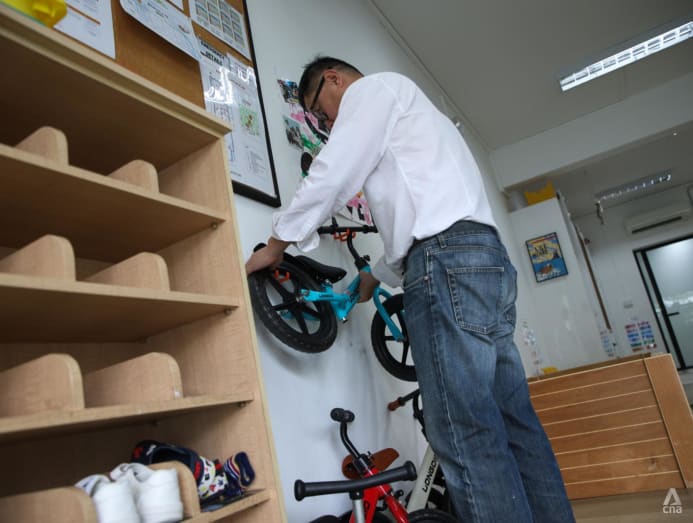
Reflecting on his son’s concerns today, he said: “I think that I have to look at it from his perspective. This generation – including yourself – would you be able to, in a very sustainable way, afford public housing in Singapore?”
He also recalled how his son had a speech delay and largely remained silent even after he was two years old. It wasn’t until his younger sister began talking that Samuel, despite being two-and-a-half years older, started to speak as well.
That made Mr Pek realise that his son might be “slower in the learning spectrum” and it opened his eyes to the importance of special needs education.
When walking the ground in Tengah, where he has been active, Mr Pek said that several young parents have also spoken to him about wanting more to be done in the area of special education.
“I get such feedback from the residents and I will often share my own experiences with them. I will tell them to ‘just be patient’, to continue to believe in their child and not to give up.”
As for his daughter, Mr Pek said that their shared interest in geopolitics and politics in Singapore has brought them closer over the years.
It was one of those conversations that cemented his decision to step forward and try to run as an election candidate.
Describing the talk as “extremely long and difficult”, Mr Pek looked visibly emotional and paused to compose himself before saying: “She’s very supportive and I think that she would be proud.
“To her, she has this understanding of me – that I will always walk the path less travelled, I will always do the more difficult things and I’m not someone who will always just acquiesce just like that. I remember she said something, like, ‘If you don’t do this, then who will?’”
CONSTRASTING POLICIES OVERSEAS AND IN SINGAPORE
Beyond ensuring affordable housing, implementing a universal minimum wage – PSP has championed this minimum wage in its election manifesto – and advocating for the concerns of the sandwiched middle class are also causes close to Mr Pek’s heart.
Spending three years as SMF’s secretary-general – a role he held from 2020 to 2023 during the peak of the COVID-19 pandemic – showed him firsthand the “very difficult circumstances” faced by small- and medium-szied enterprises (SMEs) in Singapore.
The pandemic had disrupted their supply chain ecosystem, placing pressures on cash flow, rental costs and production capacities, he noted.
“I know the voices of the SME owners, I know the pain they go through. Some of it is no fault of their own,” Mr Pek added.
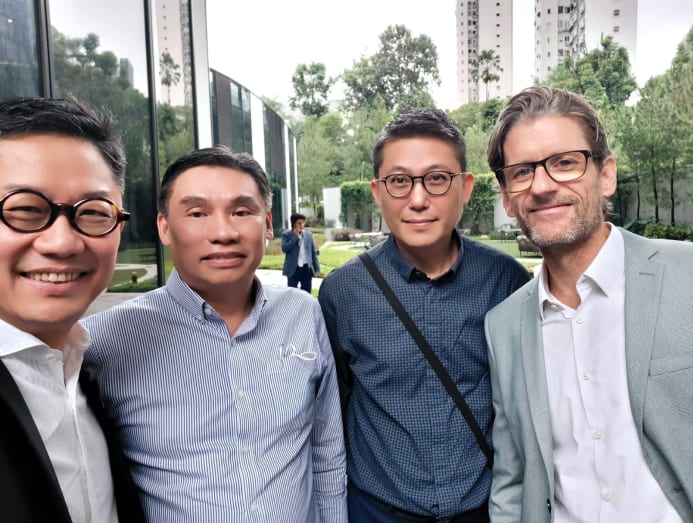
He believes that the government should provide an “important safety net” for workers and that having a universal minimum wage would be a key step in doing so.
Before Mr Pek’s time at SMF, his career – including a 13-year-stint at Sony Electronics – took him to places across the globe. He lived in Dubai, Hong Kong and Shanghai before returning to Singapore.
His work experience and time abroad have been pivotal in giving him international exposure and shaping his perspectives on policy and governance, Mr Pek said.
“You get to compare and contrast people, cities, policies across the globe and I’m very blessed to have that opportunity to do so. I know what our government has done very well that is widely applied by other cities around the world.”
Singapore’s public housing scheme is one example, which he said is “very admired worldwide” because it allows up to 80 per cent of the population to be home owners, if not more, albeit for just a 99-year lease.
Looking back on his time in Dubai, United Arab Emirates, Mr Pek highlighted how it was only in the last 15 years or so that the country introduced a “limited version” of Singapore’s Mass Rapid Transit (MRT) network for its residents.
“But at the same time, I also know that, especially in the last 10 years, I think that our government has decided to shift its prerogative towards more of an economic growth slant.”
He believes that the government has increasingly shifted its focus and policies towards economic growth, instead of what he described as a “more local-centric, social fabric resilience sort of narrative” – something he hopes to change if elected.
Since stepping down from his post at SMF, Mr Pek has turned his attention to his business in Shenzhen, China, which manufactures high-end security, surveillance and video conferencing cameras.
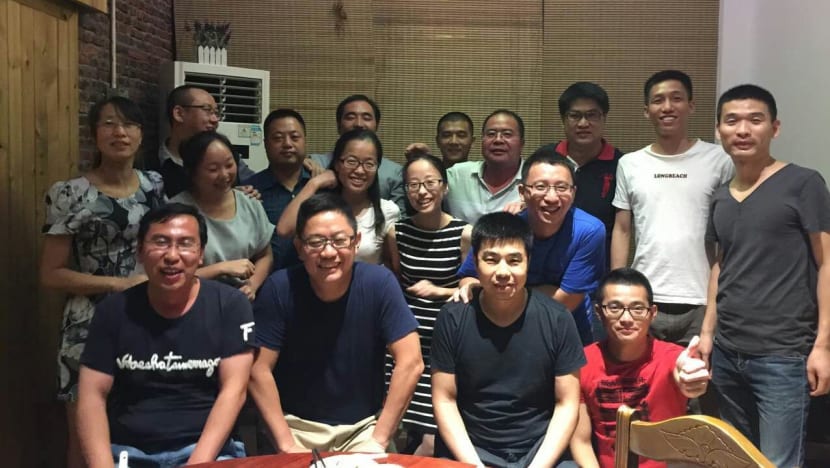
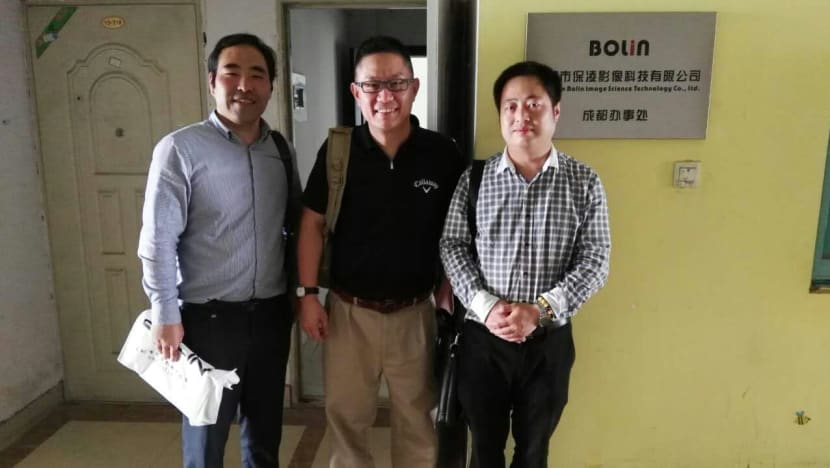
He is also currently facilitating the merger and acquisition of two Singaporean-owned factories – one in Bangkok, Thailand, and the other in Ho Chi Minh City, Vietnam – which are among opportunities that have arisen from his time at SMF.
Does he worry that joining an opposition party might dampen this or affect his business standing and dealings?
Not at all, Mr Pek said, adding that there is generally no stigma against any opposition parties or its members anymore.
“I take comfort that I can work for myself and as of now, I am very encouraged that my clients and people are very supportive of my campaign and the party that I’ve decided to join.”
He added that the manufacturing sector – much like other sectors – respects the knowledge and experience one brings instead and within his own ecosystem, he has not had any issues with being associated with an opposition party.
“I think that more credible people will join the opposition. I think it’s a matter of when, not if, that your opposition voices will really be heard in parliament.
“I’ll leave you with one thing: I’m not the first one to join the opposition with a credible background and really, I will not be the last.”








